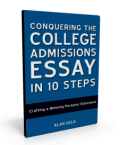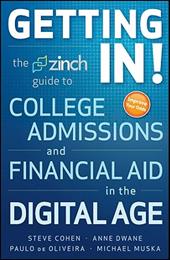When my daughter was ready for college, she had hardly even used a computer. We had one computer in our home and that was my home office/work desktop. She was allowed to use it for research and type papers for school, but that was the extent of her computer usage. The college she chose to attend was a top-tiered business university and required all their incoming freshmen to purchase IBM laptops as a part of their initial fees upon acceptance.
That laptop was her best friend during her four years of college. She carried it to class with her. She used it for in-class presentations. It accompanied her to Paris and London to study abroad. She also used it to communicate with her family and friends at home via email and messenger. It became an invaluable tool in her college education in the world of business. Her university was one of the first to incorporate technology in and out of the classroom, having an actual NYSE trading room on campus.
When my son started to college after the military, he opted to go the Mac route with a MacBook. He’s a Mac user at heart (my daughter loves the PC solely based on her first experience with computers). But both would say that they couldn’t have graduated successfully without their trusty computers.
I say all of this to underscore the importance of having a reliable computer while in college; and that was 10 years ago. Today, it’s more than a luxury as it was when she attended—it’s a necessity. In just 10 years our world has changed dramatically and there isn’t a college student alive that doesn’t have either a desktop or a laptop to use for their studies. Choosing the right computer has become almost as important for parents and students as choosing the best fit college.
Based on my own kids’ experiences, I would recommend that you purchase a sturdy, durable, dependable laptop. Laptops represent portability and convenience. They also take up less space in a dorm room and can be carried back and forth from college to home if necessary.
You want one that holds a charge throughout the day. Your student will need one that is wireless ready, with a camera and some multimedia software included. They are going to be doing presentations in college that require photo editing software, perhaps video editing software and the necessary Microsoft Office for word processing and charts and graphics.
Which laptop should you choose?
If you’re like me (unless you’re a tech geek), it’s hard to tell one laptop from the next. There are Macs and PCs and the laptop scenery is massive and varied. You and your student have to decide which best fits their needs and lands within your price point. Choosing a laptop is much like choosing a car—you want the best bang for your buck and you want one that is dependable and reliable.
Sony has just released a new laptop targeting the college student population. During the next week, I will be talking about this new product and whether or not it might meet your student’s needs during college. It’s a key investment and I hope to help you make the right decision.
In the meantime, here’s a short video to whet your appetite.
This post is part of program called “Charged and Ready” by Sony Electronics and Microsoft, where a group of college bloggers have been given a Sony VAIO-S series laptop to test and review.










